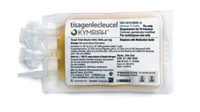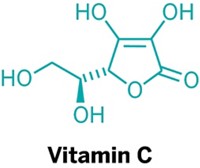Advertisement
Grab your lab coat. Let's get started
Welcome!
Welcome!
Create an account below to get 6 C&EN articles per month, receive newsletters and more - all free.
It seems this is your first time logging in online. Please enter the following information to continue.
As an ACS member you automatically get access to this site. All we need is few more details to create your reading experience.
Not you? Sign in with a different account.
Not you? Sign in with a different account.
ERROR 1
ERROR 1
ERROR 2
ERROR 2
ERROR 2
ERROR 2
ERROR 2
Password and Confirm password must match.
If you have an ACS member number, please enter it here so we can link this account to your membership. (optional)
ERROR 2
ACS values your privacy. By submitting your information, you are gaining access to C&EN and subscribing to our weekly newsletter. We use the information you provide to make your reading experience better, and we will never sell your data to third party members.
Pharmaceuticals
Stopping Metastatic Cancer
December 14, 2009
| A version of this story appeared in
Volume 87, Issue 50
ACS 2008 IRS Form 990 Available
The American Chemical Society's 2008 Form 990 is now available on ACS's website. To access the information, go to www.acs.org and follow these instructions: click on "About Us," then click on "ACS Financial Information." Go to the heading, "ACS IRS Form 990," (PDF link) and please see also the related "Guide to Schedule J" (PDF link) for explanatory information regarding ACS Executive Compensation. If you have any access problems, contact webmaster@acs.org.
The Business Insights "Missing the Target," didn't include cancer vaccines as a means of stopping deadly metastatic cancer by simply preventing metastasis early enough and in the right patient population (C&EN, Oct. 26, page 20). Solid cancers today must be separated into two diseases. The first is primary cancer, such as breast, ovarian, prostate, colorectal, melanoma, pancreatic, and lung cancers, which are basically "cured" by a combination of surgery and chemotherapy and/or radiation. In more than 92% of cases, it is not the primary tumor but metastatic cancer that kills. Prevent metastatic cancer in patients cured of primary cancer, and you save thousands of lives and millions of dollars annually.
Cancer vaccines such as carcinoembryonic antigen (CEA) types can possibly prevent metastatic cancer if given to the appropriate patients; that is, to resected stage 3 patients who have just finished chemotherapy and/or radiation. At this time, any remaining chemo-resistant cancer cells are still very small, few in number, and, we hope, vulnerable to even small immune boosts from CEA-type vaccines.
However, for the past 10 years, there has been no work with stage 3 patients, but only with stage 4 patients with full-blown metastatic cancer. In these stage 4 patients, CEA-type vaccines work only marginally, if at all. This would be expected, because in stage 4 the tumors are too large and widespread for any cancer vaccine to work effectively. Most, if not all, cancer experts publishing in this area, state that stage 3 patients (post-chemo/radiation) are the best patients to test with cancer vaccines because "disease is minimal," but no one is willing to cross that line from stage 4 to stage 3 testing.
Reasons are unclear, but most likely high profits are involved. Safety concerns are not reasonable excuses, because 10 years of stage 4 clinical trials with CEA-type vaccines have shown these vaccines to be safe. Metastatic cancer over decades is proving itself incurable, but "preventing" the deadly disease may not be so difficult now that we know and can attack these "seeds of metastasis."
John Stoddard
Gulf Breeze, Fla.





Join the conversation
Contact the reporter
Submit a Letter to the Editor for publication
Engage with us on Twitter